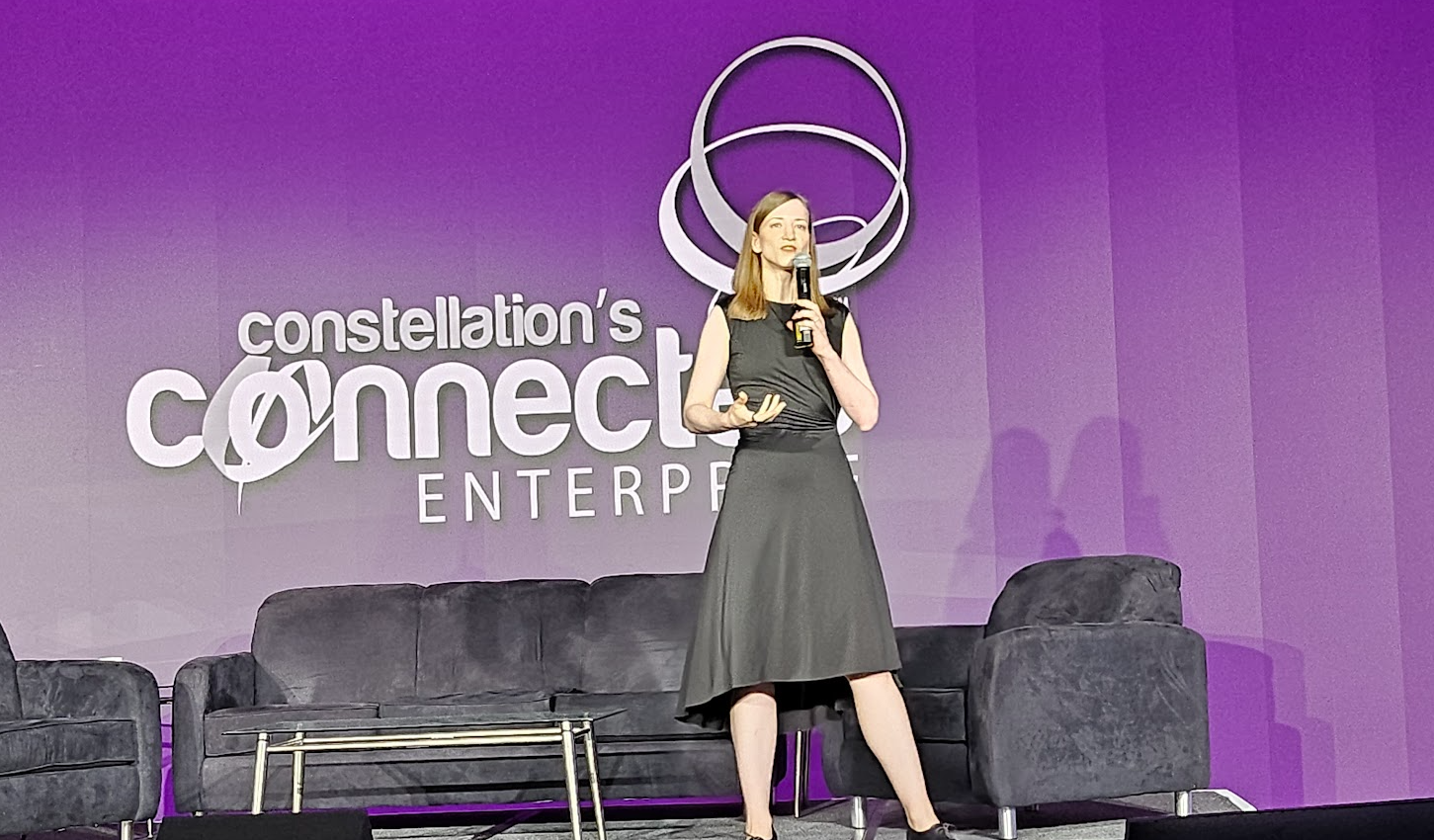Artificial intelligence and generative AI will tax leadership, but ultimately raise the bar for decision making.
Those were some of the takeaways from Cassie Kozyrkov, Founder Kozyr LLC, who delivered the keynote at Constellation Research's Connected Enterprise.
Kozyrkov is best known for founding the field of Decision Intelligence and serving as Google’s first Chief Decision Scientist, where she led the charge in Google’s transformation into an AI-first company. She's now an AI advisor for Gucci, NASA, Meta and others.

Here's a look at what leaders need to know about AI.
Every job is going to have some level of disruption due to AI. "Don't think in terms of jobs. Think in terms of what tasks of any given job are most likely to be disrupted," said Kozyrko. "The key thing to understand is that every job has some component that's a little bit repetitive."
Repetitive work is going to be automated. "The repetitive and digitized task is the ideal target for AI automation when there aren't a lot of consequences for messing up performance," she said.
- 2025 in preview: What Constellation Research’s analysts say
- Takeaways on successful AI, generative AI projects
- How autonomous vehicles could change how cities are designed
- SuperNova Award interview: How IBM used Adobe Firefly to speed up ideation and iteration
- BT150's Ashwin Rangan on CIO evolution, technology curves and what it means for genAI deployments
- BT150 Spotlight: Sunitha Ray on the difference between enterprise AI and genAI
But automating repetitive work can hollow out your bench. "Here's the thing that I think too many people forget. When you hire somebody with no experience at all the work you give them very early on repetitive and easy to check the answer. The perfect task for AI is also the perfect work for your intern or new graduate," said Kozyrko. "A lot more of the junior person's work is going to get cannibalized by more senior folks."
Kozyrko said:
"You should be preparing for what you're going to do with training your future cohort of leaders."
AI washing is trendy. "It is difficult to know what you're buying these days and what to expect--not only of the software systems but the complex collaboration between human and machine," she said.
Here's the test to see if there's AI washing or something like machine learning. "If it's written in Python, it's probably machine learning. If it's written in PowerPoint it's probably AI," said Kozyrko. "Ask questions."
Strategy matters. AI models are just recipes and a human engineer has to think hard about the problem, how to solve it and come up with instructions. "You need to understand the task to come up with those instructions," said Kozyrko. "When humans teach each other, sometimes we use exact instructions. Sometimes we do it another way and teach with examples. Data is just examples."
Leaders prefer examples when control matters. For more complex work, examples matter more. AI will force leaders to raise the bar on performance and be comfortable with change--there's no choice.
AI decisions belong to leaders not subject matter experts. "We have a problem with absentee leadership, where a lot of folks think that AI is the business of the PhD in the world. It is the business of the leader, the decision maker, the domain expert, not the person who's good at mathematics," said Kozyrko. "AI is the product of decision making with some very subjective decisions made by whoever was in charge. The worst thing you can do is think AI is some independent entity that's objective."
Generative AI makes things more complicated for leaders. "Generative AI has more than one right answer and more than one wrong answer," she said. "Test everything and test it in context. Trust nothing you haven't tested and use it carefully."
Kozyrko said:
"It is hard to set criteria for Gen AI and always think in terms of who takes responsibility. That may be more of a limiting factor than some of the technology. So, at the end, is genAI an act of desperation or the frontier of innovation? It's absolutely both."
AI is a genie that can be a friend or foe. "AI will absolutely do is raise the bar for your decision leadership. This is a genie that may grant you a wish, but we know the genie is dangerous," said Kozyrko. "AI will demand more from us in the future. It is absolutely a leadership concern."


